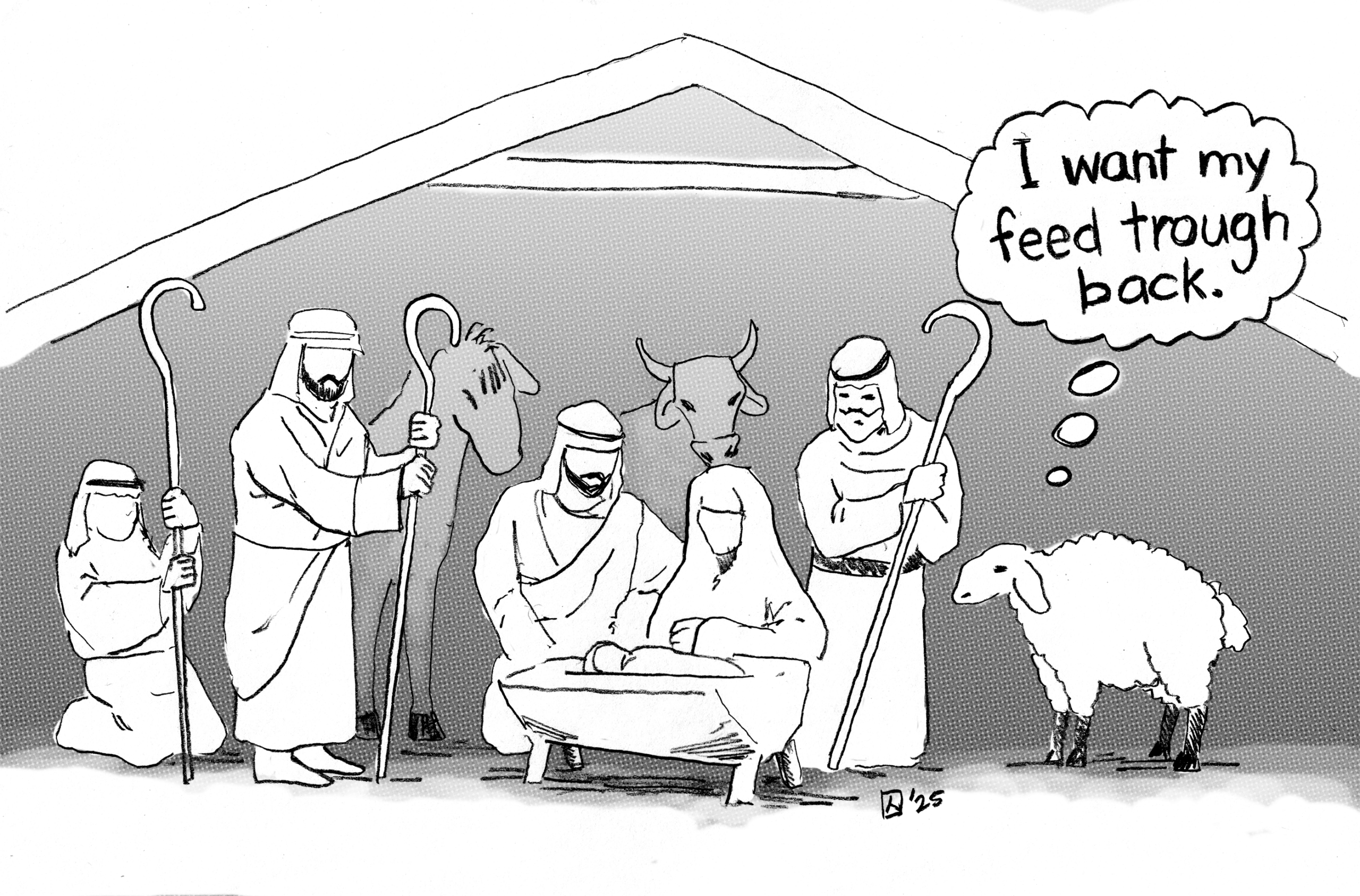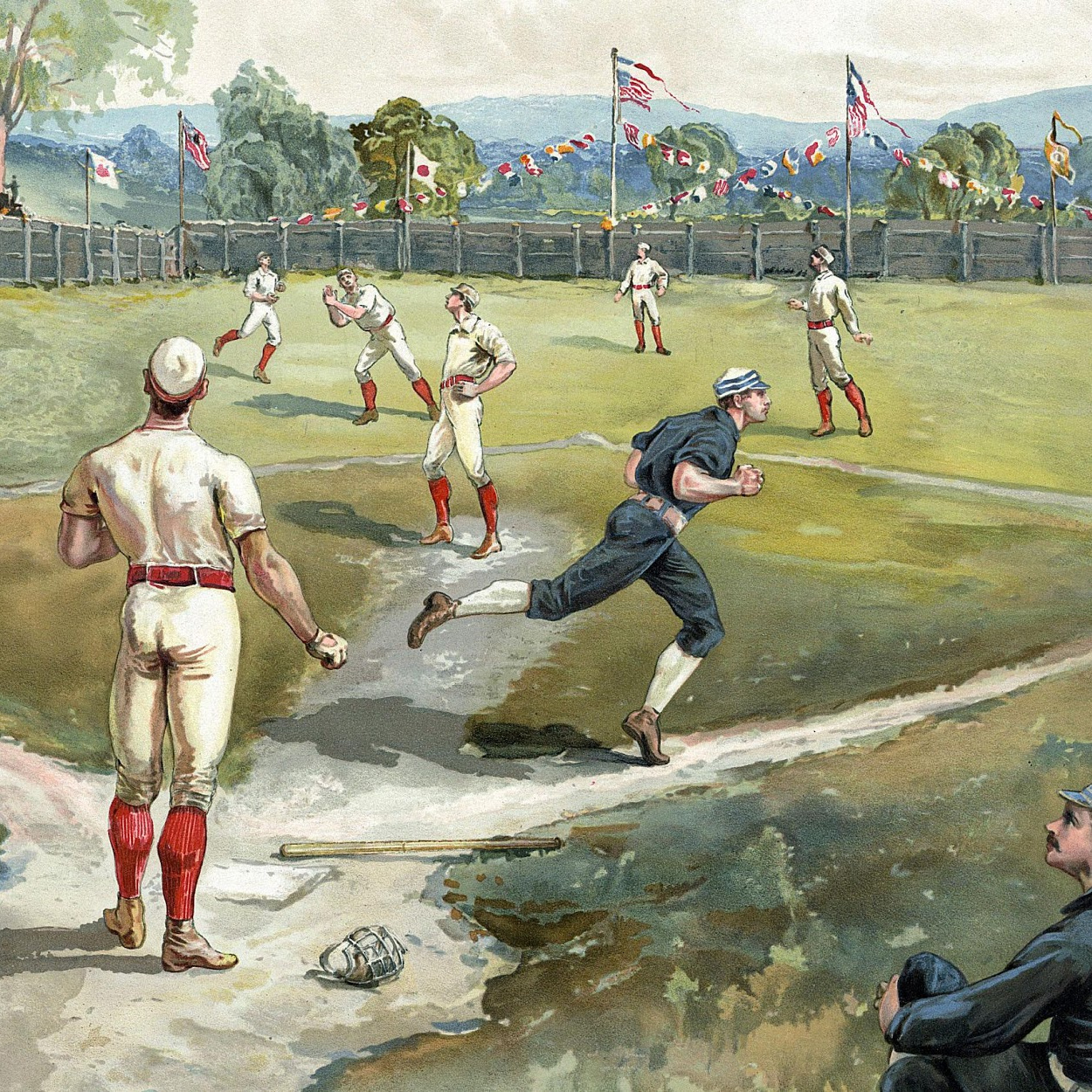I will always remember when I first caught my oldest son in a big lie. “Big” here is relative, of course; he was five. But it was the first time I felt the parental pang of being lied to by my child.
He’s a picky eater. In his defense, textures and smells hit him far stronger than other people. Most foods outside of his favorites require sheer willpower to eat. But the world isn’t kind to picky eaters, so we felt like we needed to help him stretch himself. After enduring lots of unsolicited and bad advice (it definitely feels like everyone has an opinion about your kid’s eating), we finally settled on giving him new things to experience in very small amounts.
In this dinner of infamy fourteen years ago, he was given a chicken nugget.
Most nights he finished what we gave him, if not always quickly and cheerfully. With a lot of dinners like this, he developed strategies to eat food he doesn’t like.
But not this night. Sweeping up later, I found scattered bits of a chicken nugget littering the floor under his chair. He’d surreptitiously torn it to tiny pieces, an attempt to make them small enough to go unnoticed. I definitely noticed.
What followed was mostly unremarkable. He was punished appropriately and humanely. He still loves us and we, of course, love him. But what I reflect on still fourteen years later is the anger I felt. I’d been duped, disrespected, and dissembled with. My own son had lied to me – and not just passively. There was an actual lie in there because I remember asking him if he was done eating his chicken nugget and he told me he was. He knew he wasn’t telling me the truth and he did it anyway. It was the first, to-my-face lie by one of my children. Everyone agrees that honesty is right and lying is wrong. Right?
Honesty is hard, harder than we admit.
Immanuel Kant famously argued that our obligation to be honest is so absolute that it would even prevent you from lying to a murderer at the door while you hid his intended victim. Ethical principles are universal, so if it were alright to lie at that moment then all lies would be acceptable. To rephrase in the exact words of a past church leader of mine, “There’s no such thing as a little white lie. All lies are heinous black and will send you straight to hell.”
Yet every time I have taught this idea to my ethics students over the years, they’ve found Kant’s example not just wrong, but repulsive. Most people react that way. How could a lie be worse than exposing a person to imminent harm?
But that presents a tricky alternative. If I can lie to a murderer, then that means it’s okay to lie sometimes. This is also hard to accept because it gives us something like an escape hatch. “Sometimes” is a shifty foundation for right and wrong. Everyone agrees that honesty is right and lying is wrong. Right?
And yet we are not—in practice—consistently honest people. Repeated research shows that pretty much all of us lie at least a little bit all the time. Our lies are typically inconsequential, and we usually lie to ourselves the most. But the way we think and communicate diverges frequently from the truth.
Sloppy thinking about honesty serves us poorly. Students use it to cheat. Marketers use it to embellish. Politicians use it to lie. We paradoxically reject dishonesty, yet expect it everywhere. How do we get clearer thinking about the principle of honesty?
When I think of that moment after dinner discovering the scattered remains of my sweet son’s integrity, I have to consider that this five-year-old’s failure wasn’t just about the truth. He wasn’t fundamentally dishonest. Indeed like any kid, he was sometimes brutally honest and we’d teach him what was and wasn’t okay to say to people. (What is politeness if not often tiny, acceptable dishonesties?)
I knew then and know now that he has a good heart. So why was I hurt at being lied to? The problem that dinner wasn’t his commitment to truth, but his relationship with us, his parents. It mattered that he was my son. If I’d been babysitting a nephew, the same sneaky behavior would’ve been funny to me, not offensive. With my son it wasn’t just the truth at stake; it was our connection.
I tell this story because it illustrates why honesty is hard. Practical honesty, the kind that we intuitively use every day, is not measured by the truth alone. It can’t be, considering all the issues noted above. There’s something extra that makes honesty both harder and clearer.
If honesty could be calculated, it wouldn’t be:
Honesty = truth
Instead, the calculation is:
Honesty = Truth x Relationships.
This brings us back to Kant. He saw ethics as an obligation borne from two things: first, our capacity to reason and discern truth; and second, the inviolable dignity inherent in every person. Truth doesn’t matter without people who matter. Ethics doesn’t even make sense if people are removed from the equation. Every lie needs a listener.
How we think of others makes practical honesty so much clearer. We like to say, for example, that someone who lies has a “shaky,” “loose,” or “relaxed” relationship with the truth. But the more precise accusation is that their relationship with others needs to be stronger. They undervalue the people to whom they owe the truth.
This also makes sense of our sloppy thinking about honesty’s boundaries. It’s because relationships are hard. We often struggle to keep them healthy. They compete for our attention and loyalty, putting us in dilemmas about which to prefer. The hardest decisions you’ll ever face about honesty will certainly involve relationships that are at odds with each other.
Relationships also explain why we frequently feel comfortable stepping away from the truth. We dissemble all the time to give loved ones confidence or comfort. We bite our tongues to keep the peace. Some families are scrupulously honest until they play a board game together where cheating is part of the fun. (This is not a universal experience, as newlyweds discover regularly.) And imagine Christmastime without the perpetual lie of Santa Claus. Dishonesty is indignity because it discards relationships and the people who come with them.
Our ineptitude in relationships often leads us to dishonesty. Kids will often lie because they think it preserves good feelings with their parents. Consider how many ill-conceived lies are motivated by love. We’re lucky that same love, in turn, motivates forgiveness.
None of this says that relationships excuse us. This formula—Truth times Relationships—makes more of honesty, not an escape hatch from it. We owe people the truth. And relationships of all shapes and sizes easily come to life, even between total strangers. Anytime our words (or silence) put us in another’s orbit, the gravity of truth pulls us to be honest with them.
The heart of the matter is this: dishonesty is indignity because it discards relationships and the people who come with them. Honesty, on the other hand, is more than mere truth; it’s connection and commitment and it manifests love.
How do we become more honest people? We won’t find useful answers with Kant’s murderer at the door or other hypotheticals, as much fun as I have teaching them to my students. The answers are in our day-to-day relationships. We need to understand those better. What obligations and commitments do we owe to our family, friends, coworkers, and community?
We become more honest by building stronger relationships with those close to us, commitments to those who count on us, and respect for everyone around us. My children have lied to my wife and me many times since that fateful dinner, and with more at stake. But over the years I’ve also seen them show incredible integrity. At every point, it’s been our relationships at the center of it all, not merely the truth.
















